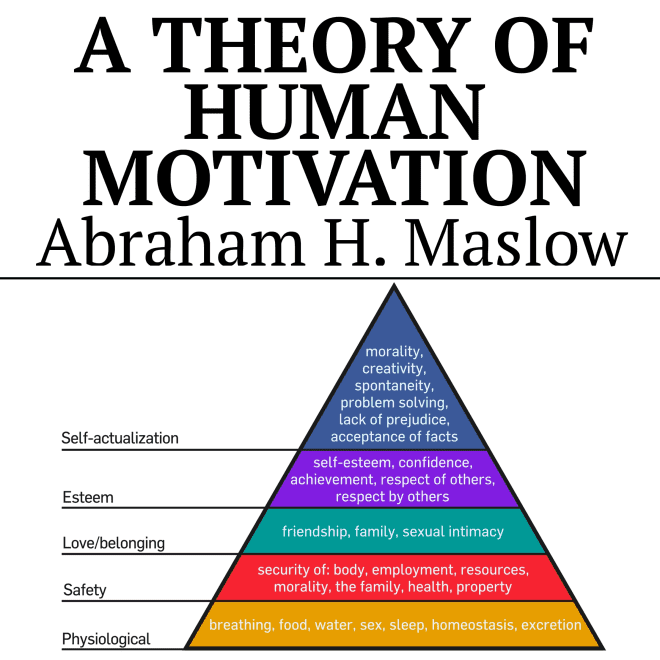“A Theory of Human Motivation,” developed by psychologist Abraham Maslow in 1943, is a foundational concept in psychology that outlines a hierarchy of needs that drive human behavior. Maslow’s theory suggests that individuals are motivated by a series of five basic needs, arranged in a pyramid-like structure. At the base are physiological needs, such as food, water, and shelter, followed by safety needs, which include personal security and stability. Next are social needs, such as love, belonging, and relationships. The fourth level is esteem needs, which encompass self-respect, recognition, and achievement. At the pinnacle of the hierarchy is self-actualization, the desire for personal growth, creativity, and realizing one’s full potential. According to Maslow, individuals must satisfy lower-level needs before they can pursue higher-level needs, with self-actualization representing the ultimate goal of human motivation. This theory has had profound implications in various fields, including psychology, education, and business, providing insights into human behavior and personal development.
a theory of human motivation
